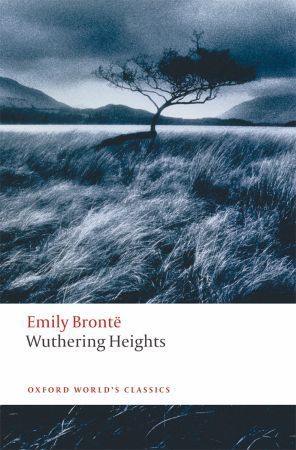Discussion questions for Emily Brontë’s Wuthering Heights
Last week we announced the launch of the Oxford World’s Classics Reading Group, and the first book, Wuthering Heights by Emily Brontë. Helen Small, editor of the Oxford World’s Classics edition of the book, has put together some helpful discussion questions that will help you gain a deeper understanding of the text as you read it and when you finish it.
Even the early critics who were revolted or dismayed by the violence of Wuthering Heights admitted the ‘power’ of the novel. What seems to you to be the best explanation of that power? How ‘moral’ a story is Wuthering Heights? More specifically, is moral justice a concern in the shaping of the story and its characters? Catherine Earnshaw comes across as many things: passionate, rebellious, full of laughter and of scorn for others, driven by social ambition but careless of social expectations, self-seeking but ultimately self-destructive (willing herself to die). Is it a problem for our reading of her that we never hear her voice unmediated? How far did you feel inclined to trust what you are told of her by others?

Heading image: Top Withens by John Robinson. CC BY 2.0 via Wikimedia Commons.
The post Discussion questions for Emily Brontë’s Wuthering Heights appeared first on OUPblog.









 Related StoriesAnnouncing the Oxford World’s Classics Reading GroupEmbark on six classic literary adventuresBreath is the basis of good singing
Related StoriesAnnouncing the Oxford World’s Classics Reading GroupEmbark on six classic literary adventuresBreath is the basis of good singing
Published on February 11, 2015 03:30
No comments have been added yet.
Oxford University Press's Blog
- Oxford University Press's profile
- 238 followers
Oxford University Press isn't a Goodreads Author
(yet),
but they
do have a blog,
so here are some recent posts imported from
their feed.



